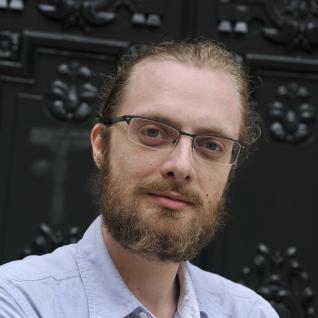Even persons not familiar with medieval epics are likely to have heard the tale of Charlemagne's nephew, Roland, and his heroic death in the Pyrenean moutains. It was even supposedly sung to the soldiers of William the Conqueror, on the eve of the battle of Hastings. Almost 1000 years later, it is still included in university courses or reinvented in popular fantasy novels.
Finished event
Thursday 23 May 2024
- École nationale des chartes, 65 rue de Richelieu, Paris 2e
- 18h-19h30
When we think of the Song of Roland, we think first of the short, archaic version. Yet, it was almost completely lost, and is kept in a single, cheap and amateurish-looking manuscript, copied somewhere near Oxford in the first half of the twelfth century.
Why do we keep only a single manuscript of this illustrious version, while we keep 10 manuscripts of the later rhymed versions, some copied in Italy almost 200 years later?
This is not an isolated case of lost, or almost lost text, from the lost Biblical books, to the majority of Livius History of Rome, the epic of Beowulf or Chrétien de Troyes's Iseut novel.
This raises an important question about the transmission of culture and texts: What is the role of chance and of social, cultural, textual or material factors in the transmission of culture and in the survival, evolution or extinction of literary works?
Philologists, like biologists and linguists, have adopted since the 19th century the genealogical tree as a metaphor to represent the relations between the different documents containing a given work, as it can be deduced from the innovations (errors, mutations) they present. It has been observed since at least Joseph Bédier in 1928, that those trees present very peculiar and very unbalanced shapes, that are hard to explain intuitively.
This problem of "unbalanced trees" is actually also present in biology, where it has been the subject of much attention and research.
To answer this long-standing question, a new research project, called LostMa, is starting at the École des chartes, and will be presented during this talk. It adoptsa completely revised methodology, combining philological expertise with mathematical modelling and computer simulations, the analysis of philological data, and artificial intelligence for manuscript analysis.
It aims to assess the role of social and cultural factors, such as book production changes, authoriality, or the different contexts of insular or continental cultures. Finally, by this, it hopes to gain a deeper understanding of the 'life and death' of the cultural artefacts, and the missing pieces of the puzzle that underly most our knowledge of the cultures of the past.
Les manuscrits perdus de l’Europe médiévale

